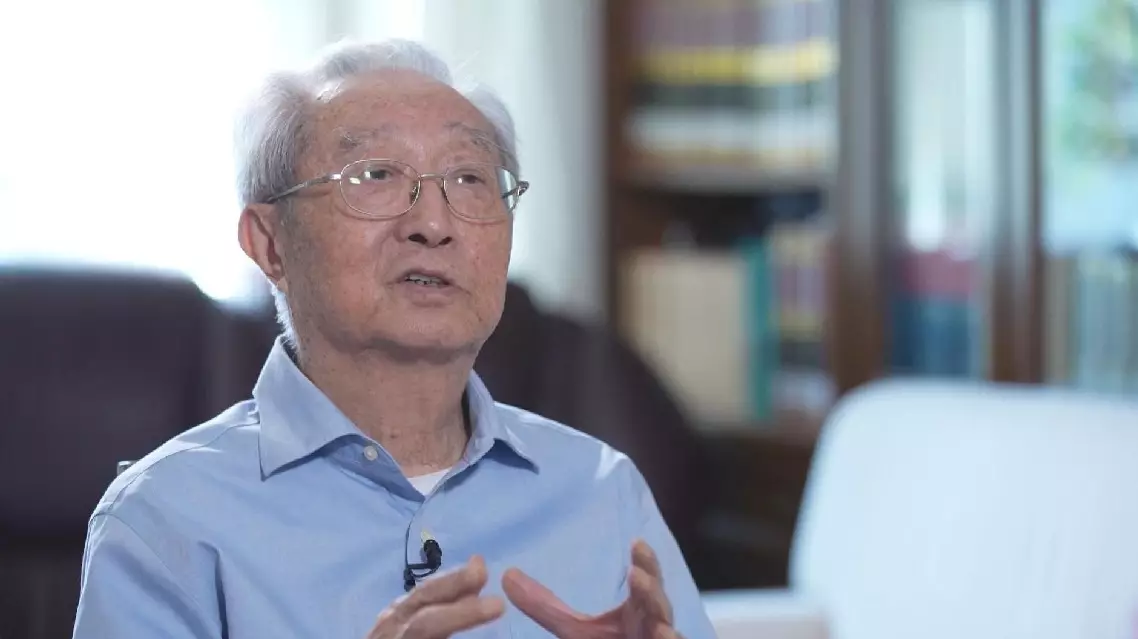An outstanding professor on Chinese legal history, who was awarded the national honorary title of People's Educator on the occasion of the 75th anniversary of the founding of the People's Republic of China, has won academic credit for China with seven decades of hard work.
Zhang Jinfan, who still reads and writes every day even at the age of 94, has not yet retired from teaching Chinese legal history.
Working as a tenured and emeritus professor at the China University of Political Science and Law, Zhang won the national honorary title on Sept 13 this year.
Recalling his childhood, the prominent jurist said that his greatest interest at the time was listening to his father telling stories about China's past and reading historical novels.
In 1950, Zhang went to the Renmin University of China to study legal history. Two years later, he took a school job, teaching and researching the subject.
He joined the China University of Political Science and Law years later.
As the founder of Chinese legal history studies, he has built a bridge between China's past and future with his academic research and helped introduce the country's development of its rule of law to the world.
"Because it is the Chinese legal history, it should be rooted in China. I thought at that time that if my offspring went to Japan to learn the subject, it would be sinful," Zhang said.
In 1979, Zhang suggested compiling a multi-volume monograph of the Chinese legal history.
"At that time, though Renmin University was the center for the research of the Chinese legal history, there were only three teachers qualified to teach the subject. When we began to compile the book, there were less than 20 across the country who could join us," he said.
It was six years later that Zhang started to compile the book.
"What troubled me most was that there were not enough references to support our points. For example, it is well believed that there were laws covering all aspects in the Qin Dynasty (221 BC - 207 BC), while no contemporary document had been discovered at that time to prove it. So we had to compile the books according to Hanshu and Shiji. It was years later that bamboo slips recording the laws were excavated from the mausoleums of the Qin Dynasty. Then we had a better understanding of such an advanced civilization of law," Zhang said.
Both the Chinese classics Hanshu, or the Book of Han, and the Shiji, or the Records of the Grand Historian, were compiled in the Han Dynasty (202 BC-AD 220) following the Qin Dynasty.
In 1988, publishing houses all over the country began to be responsible for their profits and losses, which posed difficulties to the publication of Zhang's academic book.
"One day, I came with three complied volumes to the head of a publishing house, who was one of my students, to ask him for help. We didn't compile the book for fame or academic status, but for a kind of ambition of the Chinese nation, so no remuneration was paid for the work," he said.
In 1998, the multi-volume work of Chinese Legal General History came out finally.
"Since this book came out, the Chinese legal history has gained a firm foothold in the Chinese culture, and the Japanese scholars dare not boast their academic status in the field as in the past. As a result, Chinese scholars are confident and courageous enough to face foreign scholars in this field, and speak their own voice," Zhang said.

Elderly honoree spends lifetime to win academic credit for Chinese legal history









